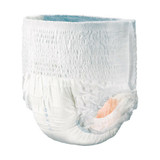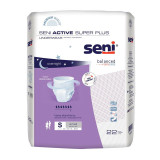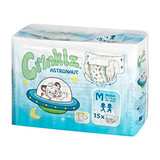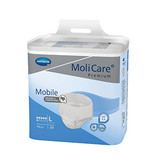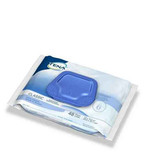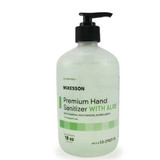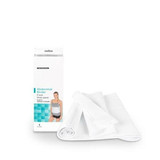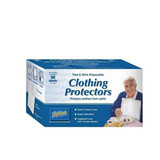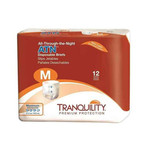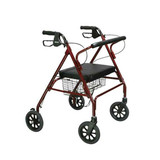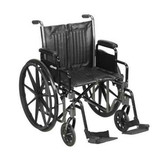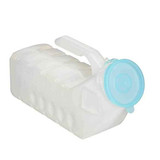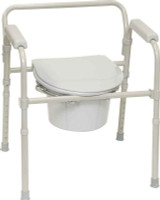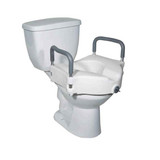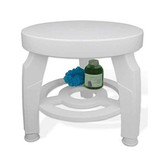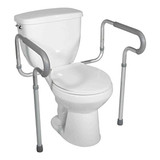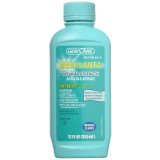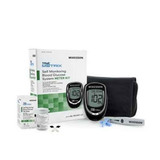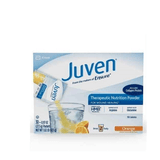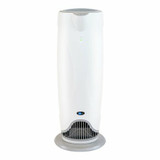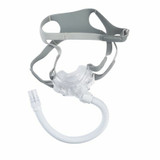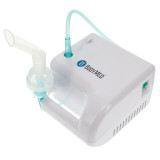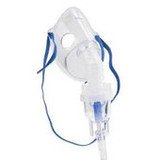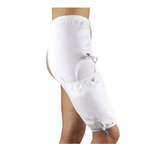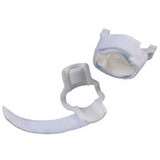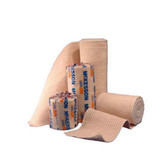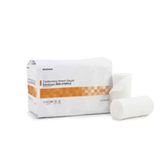
The Caregiver Guide - UTI Prevention and Treatment
Urinary tract infection (UTIs) affect the urinary system, including the kidneys, bladder, and urethra. They are very common, especially among women, who are 30 times more likely to get them than men. The Urology Care Foundation reports that, in the US, UTIs account for around 8 million doctor visits annually. About 40% of women and 12% of men will experience a UTI at some point in their lifetime.
UTIs can strike at any time in your life, but older people are somewhat more susceptible. This is attributed to several factors, but it is primarily due to physiological changes in the body. Reduced estrogen levels in women allow the growth of harmful bacteria and yeasts, while the weakening of bladder and pelvic floor muscles gives rise to incontinence, which is conducive to bacterial growth.
UTIs can cause pain, burning, urgency and frequency when urinating, blood in the urine and pelvic discomfort. Sometimes, they also cause fever, chills, nausea, and vomiting. If not appropriately treated, UTIs can spread to the kidneys and cause more serious complications. This article discusses ways to prevent and treat UTIs by practicing good hygiene and hydration or using cranberry juice, probiotics, and antibiotics.
Prevention
One of the most effective ways to prevent a UTI is to drink enough water every day. Water helps flush out bacteria from the urinary tract and dilute the urine. According to a study published in JAMA Internal Medicine, increasing water intake by 1.5 liters per day can reduce the risk of recurrent UTIs by nearly 50% in women prone to them.
A separate study by Jama Internal Medicine concluded that drinking cranberry juice or taking cranberry supplements can also significantly lower the risk of a UTI by preventing bacteria from sticking to the bladder wall. Cranberries contain substances called proanthocyanidins that have anti-adhesive properties. Cranberries are also a rich source of Vitamin C, another natural remedy that may help prevent UTIs by making the urine more acidic and inhibiting bacterial growth.
Probiotics are beneficial bacteria that can restore the balance of the vaginal flora and prevent harmful bacteria from colonizing the urinary tract. Probiotics are also professed to help restore the stomach’s bacterial balance, which may be disturbed when taking antibiotics. There is little empirical evidence of this, but probiotics do no harm, so it is often recommended. Probiotics can be found in foods such as yogurt, kefir, sauerkraut, and kimchi or taken as supplements.
Besides drinking plenty of fluids and using natural remedies, some other good habits can also help prevent the occurrence or recurrence of UTIs. These include:
- Wiping from front to back after using the toilet. This can prevent bacteria from the anus from reaching the urethra and causing an infection.
- Urinating after sex. This flushes out bacteria that may have entered the urinary tract during sexual activity.
- Avoiding spermicides and diaphragms. These products can irritate the urinary tract and increase the risk of infection. They can also alter the vaginal flora, making it easier for bacteria to grow.
- Wearing cotton underwear and loose-fitting clothes. This allows better air circulation and prevents moisture buildup in the genital area.
- Changing sanitary pads or tampons frequently during menstruation. This can prevent bacterial growth and infection.
- Choosing the correct diaper makes a big difference for those who suffer from incontinence. Choose a diaper with a snug but comfortable fit, adequate absorbency for your lifestyle and a design that will keep your skin dry. For expert advice and the best adult diaper products at the best prices, contact LL Medico. Our team has over 25 years of experience in this field.
If you are a caregiver for someone who has a UTI or is at risk of getting one, you should also follow these tips:
- Encourage them to drink enough water and fluids throughout the day. Offer them water, juice, tea, or soup regularly if you see that they’re not taking on enough fluid.
- Remind them to urinate often and not hold their urine for too long. You can help them go to the bathroom when needed or provide them with a bedpan or a urinal if they are bedridden.
- Assist them with their hygiene and ensure they wipe from front to back after using the toilet. You can also help them change their underwear and clothes daily.
- Monitor their symptoms and check their temperature regularly. You should call their doctor immediately if they show signs of fever, chills, nausea, vomiting, or back pain.
Treatment
If you suspect that you or someone you care for has a UTI, you should see your doctor immediately. A UTI can be diagnosed by testing your urine for signs of infection, such as bacteria, white blood cells, or blood. Sometimes, your doctor may also order a urine culture to identify the specific type of bacteria causing the infection and determine the best antibiotic to treat it. Sometimes, you may also need an imaging test, such as an ultrasound or a CT scan, to check for any abnormalities in your urinary tract that may contribute to recurrent or complicated infections.
The treatment for a UTI depends on the severity and location of the infection. For most uncomplicated infections affecting the bladder or urethra, your doctor will prescribe a short course of oral antibiotics that are effective against common bacteria such as E. coli. Some bacteria may resist certain antibiotics, so it is important to take your medication exactly as prescribed and follow up with your doctor if your symptoms do not improve.
Antibiotics sometimes cause side effects such as nausea or diarrhea, among others. To minimize these effects, you should take your antibiotics with food or water, avoid taking them with dairy products or antacids, and use probiotics or yogurt to restore your vaginal flora and stomach bacteria. You should also drink plenty of water to help flush out the bacteria and ease the pain. Over-the-counter pain relievers may help reduce inflammation and discomfort. Avoiding alcohol and caffeine is advisable, as they can interfere with the antibiotics or irritate your bladder and make your symptoms worse.
If you are a caregiver for someone who is taking antibiotics for a UTI, you should also do the following:
- Ensure they take their antibiotics on time and finish the entire course of treatment. Do not skip doses or stop taking them early, which can lead to antibiotic resistance and recurrent infections.
- Keep track of their medication schedule and dosage. Use a pillbox, calendar, or alarm reminder to ensure they take doses correctly, if necessary.
- Watch out for any signs of allergic or adverse reactions to the antibiotics. These include hives, swelling, difficulty breathing, severe diarrhea, or bloody stools. If you notice any of these symptoms, stop giving them the antibiotics and call their doctor or 911 immediately.
- Check their urine color and odor regularly. You should contact their doctor immediately if their urine becomes dark, cloudy, foul-smelling, or bloody.
Conclusion
Although UTIs are common, a few basic precautions can substantially reduce the risk. For people with incontinence, a little extra care is required. Firstly, choosing a product that suits your specific requirements is half the battle. However, using it correctly with attention to proper hygiene is the crux of the issue. You may find this daunting as a first-time user but don’t fret. For all your incontinence supplies and urology equipment, contact us at LL Medico. We’ll take all the guesswork out for you.
As a caregiver, most of these precautions, particularly hygiene, are part of the routine anyway, so just a little vigilance is all that is required to spot the signs of a UTI early on and to take timely action. When they do slip through, they are usually relatively simple to treat, provided you act quickly. So, take heart and take UTIs in your stride. The job you’re doing is much bigger than that.




